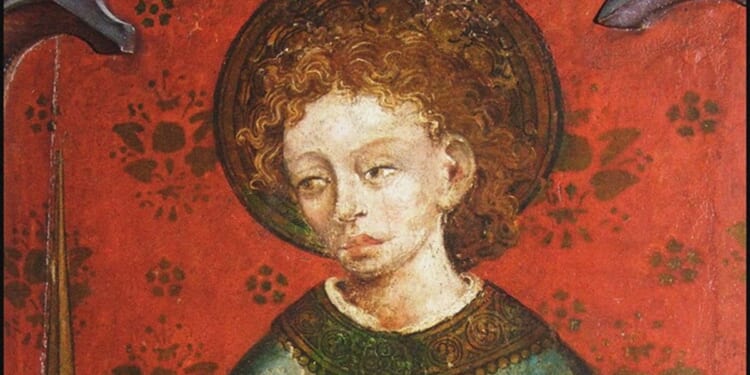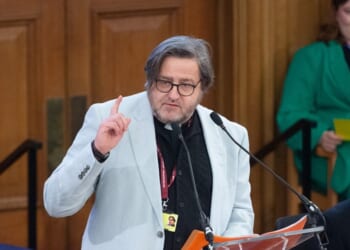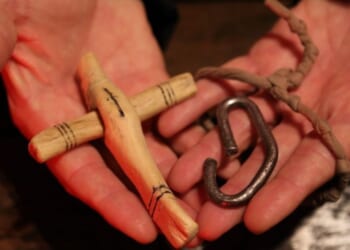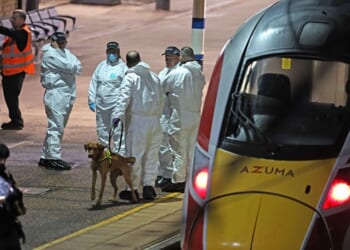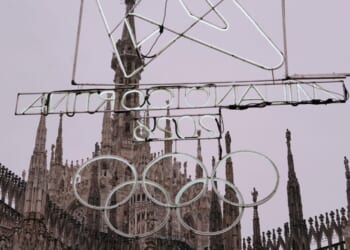THE making of a documentary film exploring the history of the Jewish blood libel in medieval Norwich, and the cathedral’s involvement in perpetuating it, has led the Chapter to agree to remove 1990s information leaflets from the Chapel of the Holy Innocents.
The documents relate to the murder in 1144 of 12-year-old William of Norwich, which was blamed on the Jewish community. The myth gained ground when a Benedictine monk, Thomas of Monmouth, accused the Jewish people of murdering Christian boys so that they could use their blood in ritual ceremonies. The libel spread to Europe, leading to the persecution and massacre of the Jewish people.
Modern versions of the myth have recently resurfaced in Gaza.
Norwich Cathedral had a shrine to William, whose body was said to have been buried beneath the altar. It was destroyed at the Reformation, however, and in the 1990s, the Chapel of the Innocents was re-dedicated to victims of abuse, persecution, and intolerance.
The particular objection to the leaflets was the way in which William’s murder was linked with the slaughter of the innocents, as told in St Matthew’s Gospel.
Dr Oren Margolis, a historian at the University of East Anglia, told the Church Times on Tuesday: “We didn’t make any complaint as such, but the film brought longstanding disquiet into the open.
“The Dean saw that, and that has led us to an acknowledgement of the importance of working together on this. The cathedral is their place. Blood libel and anti- Semitism are not problems that we have, but that other people have; so it’s really important that the moves are coming from the cathedral’s side.”
Two years ago, the Mayor of Norwich apologised for the city’s part in the spread of blood libel.
“The conversation has changed so much since 30 years ago, when the document in question was drafted,” Dr Margolis said. “The conversation we’re going to have, starting next month, is to address how the cathedral can best recognise the blood libel in a way that is appropriate and respectful.
“I consider the way in which the film has prompted the Jewish community to be more articulate to be a good news story.”
The powerful short film, about two small English cities in the shadow of the blood libel, is to be screened in the city on 4 December as part of the British Jewish Life on Film event. A coda has been added to include a section on the start of this conversation with the cathedral.
The Dean of Norwich, the Very Revd Dr Andrew Braddock, said on Tuesday that the making of the documentary had brought long-held concerns to the surface.
“Jewish communities have never felt at ease with the way the story of William has been told, not least because it didn’t give enough weight to the reality of the blood libel, and the terrible consequences that flowed from it in European history and beyond,” he said.
“What really troubled them was that putting the story of William into the context of a chapel dedicated to the Holy Innocents was creating a parallel between William as an innocent boy who was killed allegedly by the Jews, with the story of the boys under two years old in Bethlehem being killed by a Jewish king, Herod.
“The members of the Jewish community that have rightly spoken out are very sensitive to the interpretation that could be placed on that, including its relationship to supersessionism.
“That’s a theological complexity, but what we want to do in our work together is to create some interpretation which is very clear in telling the story and the consequences. What happened in Norwich in 1144 is the beginning of the libel. We just need to own it as part of our history — but in a way which makes it clear that today we work together as synagogue and cathedral, both committed to taking a shared stand against anti-Semitism in our own time.”

